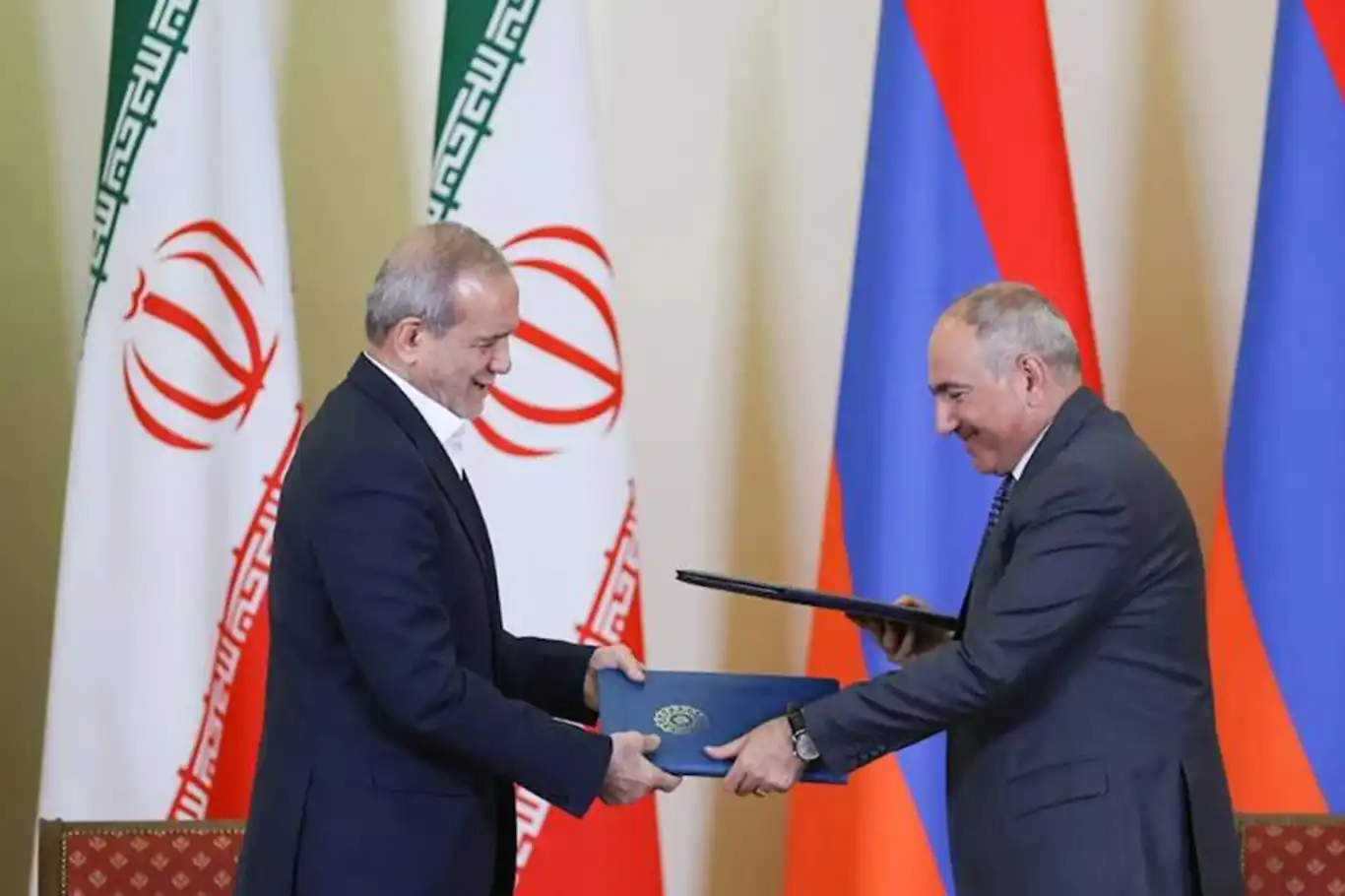Iran and Armenia seal key agreements during President Pezeshkian’s visit to Yerevan


Iranian President Masoud Pezeshkian concluded a two-day official visit to Yerevan with a strong message of friendship and cooperation, following a series of high-level meetings with Armenian officials that resulted in significant and beneficial agreements between the two countries.
In a joint meeting with Armenian President Vahagn Khachaturyan on Tuesday, President Pezeshkian underscored Tehran’s determination to elevate bilateral relations with Armenia across political, economic, and cultural spheres. “The purpose of my visit was to strengthen the bonds of friendship between our two nations, and I am pleased that our discussions have led to fruitful agreements,” Pezeshkian said, expressing optimism about the outcomes of the trip.
The Iranian leader also voiced appreciation for Armenia’s stance in condemning Israeli aggression against the Islamic Republic. He accused Western powers of turning a blind eye to what he called the “atrocities of the Israeli regime in Gaza and elsewhere,” while simultaneously leveling unfounded accusations against Iran. “This double standard reveals the hypocrisy of those who claim to defend human rights but ignore Israel’s crimes,” he added.
Touching on broader regional issues, Pezeshkian reiterated Iran’s fundamental opposition to U.S. involvement in the Caucasus, pointing to Washington’s history of broken promises and destabilizing policies. “Past experiences show that the presence of the United States in our region has never brought security or stability,” he said.
For his part, Armenian President Khachaturyan praised the outcome of Pezeshkian’s visit and expressed confidence that it would mark a new stage in Armenian-Iranian cooperation. He pointed to the long-standing cultural and historical ties binding the two nations, noting that relations have remained steady since Armenia’s independence. “Our two countries are connected by thousands of years of civilizational bonds, and our cooperation continues to deepen,” Khachaturyan said.
Highlighting the presence of Iranian businesses in multiple sectors of Armenia’s economy, Khachaturyan called for further expansion of trade and investment opportunities. He also expressed hope that the South Caucasus republics — Armenia, Azerbaijan, and Georgia — could foster peaceful relations alongside Iran and Turkey, creating a stable environment for regional growth.
Addressing international developments, the Armenian president argued that Israeli aggression had only served to strengthen Iranian national unity. He warned that international law and principles were being increasingly undermined by unilateralism and “bullying” on the global stage.
The visit reflects Iran’s continued push to strengthen alliances with neighboring countries amid rising regional instability and ongoing tensions with the United States and Israel. Analysts suggest that closer ties with Armenia could help Tehran consolidate its influence in the South Caucasus, a region where geopolitical rivalries involving Russia, Turkey, and Western powers remain intense. (ILKHA)
LEGAL WARNING: All rights of the published news, photos and videos are reserved by İlke Haber Ajansı Basın Yayın San. Trade A.Ş. Under no circumstances can all or part of the news, photos and videos be used without a written contract or subscription.
Hundreds of thousands of Yemenis filled the streets of the capital on Friday in a massive demonstration under the slogan, “Steadfast with Gaza – We Fear No Threats and Are Not Intimidated by Conspiracies.”
Arab and Muslim leaders, governments, and peoples share a historic responsibility to protect Al-Aqsa Mosque, Sheikh Ekrima Sabri, preacher of the holy site, declared in a video message marking the 56th anniversary of the 1969 arson attack.
The United States has launched a sweeping review of more than 55 million visa holders in what critics describe as one of the harshest assaults on migrants, foreign workers, and students in modern American history.
The Gaza Strip is now gripped by what international monitors are describing as a full-scale famine, with thousands of Palestinian children already suffering from acute malnutrition and hunger-related deaths rising sharply under Israel’s suffocating blockade.